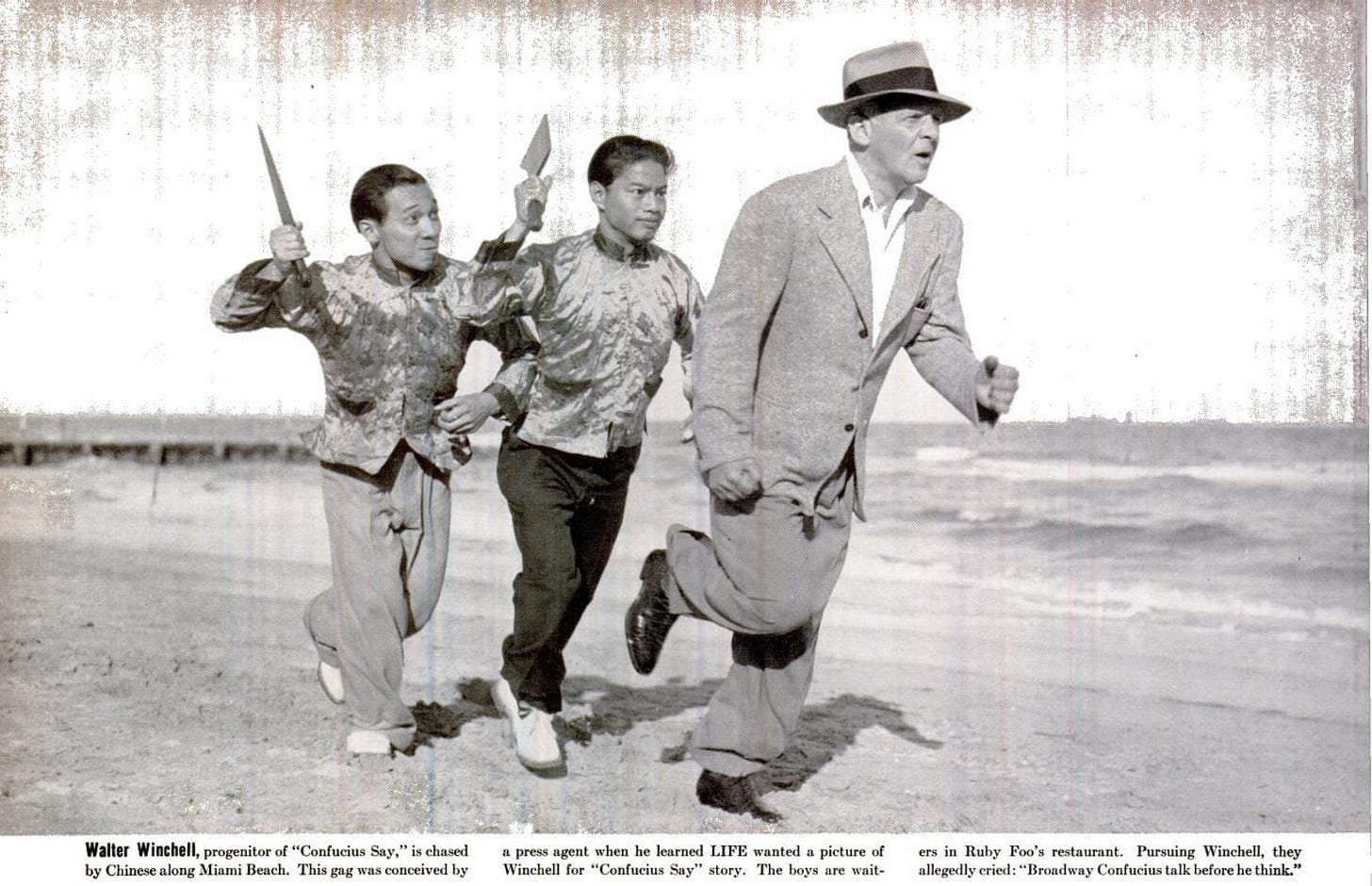Hello intersectional thinkers 👋
Greetings from Tokyo! I’ve been doing some research into Japanese and Chinese storytelling techniques. See if you like the style:
1 unexpected intersection
There’s a quiet urban Chinese village tucked away in Shenzhen’s import export district called Dafen.
Between 8,000 farmer-turned-oil painters, the village can wholesale $600M worth of hand-painted copies of art in a year.
In just a few days, the painting assembly line can efficiently generate duplicates of masterpieces from Van Gogh to Monet, from Da Vinci to Picasso.
These Chinese painters have fervently studied the brush strokes, broke down the colors and composition, and practiced beyond the 10,000 hours of mastery within their chosen niche, like expressionist fruits, or Renaissance portraits.
Dafen is the result of an unexpected collaboration across geographies, cultures, and time. But it’s not the only example.
Let’s cross the Pacific Ocean for a story about Confucius, and his time in America.
Confucius Say
“The man who asks a question is a fool for a minute, the man who does not ask is a fool for life.”
“Choose a job you love, and you will never have to work a day in your life.”
“Those who remain silent during a chess match are individuals with real class, while those who say too much after a few drinks are weasels.”
These are wise words attributed to Confucius, a 500 BC Chinese philosopher, poet, and strategist with human-centered teachings that still underpin the mental models of modern East Asia.
But for full transparency, these words were not uttered by the Sage himself.
Instead, Confucius spoke through a Broadway gossip columnist named Walter Winchell in 1940’s America.
Winchell, the master of word coinage, started a “Confucius say'' column where he shared satirical and inaccurate adages in poor grammar as a (politically incorrect) bit. This trend showed promise, and was swooped up and popularized by the well-known comedian and radio host Jack Benny.
Before Confucius knew it, he became a pop icon in American culture, inspiring music, fashion, and Times Square peddler products (see Life Magazine’s piece on the phenomenon below).
At one point, the “Confucius say” fever was so hot, news publications even asked their readers to submit their ‘original’ Confucius say at $2/published wisdom.
People just couldn’t get enough.
Finding freedom in imitation
Dafen’s duplicates and Winchell’s “Confucius say” were far from the original. But their remakes created an unexpected intersection of ideas, of cultures, of context. This is where those same ideas, cultures, and context evolve.
Every copy, every translation, every representation is imperfect.
Even the color of the sky you see is slightly different from mine.
Through each recount, reproduction, and regurgitation, ideas are embellished, diminished, and repurposed to get a different point across.
Xiao Yong, a 20-year Van Gogh specialist in Dafen, went on to interpret the Chinese context with Dutch sensibilities in his original paintings.
Winchell, though insensitive with his jokes, put Confucius on the American mainstream map, and would eventually give rise to US-grown non-Chinese Sinologists who are on the front-line defending the integrity of Chinese philosophers.
Though Xiao Yong’s Chinese landscapes and Winchell’s misquoted aphorisms weren’t authentic, they can still shape cultural discourse without the status of a Sage or Artist.
They popularize out of reach concepts – like the mysterious process of art and Eastern thought - and invite others to participate in the recreation of them, thereby evolving the meaning of esoteric concepts.
1 paradox
“The discovery of innocence is its loss.” - Neri Oxman
1 visual texual Zettelkasten
The title of the defining work of Marcus Aurelius, what we have come to know as Meditations, is not the original title Aurelius gave his diary of thoughts.
The title was Ta eis heauton, roughly translated to “Notes to Myself,” or “Things that Concern Myself.”
Is this the Publisher’s 480p to 4K moment, where being aware of “selfish” thoughts is really just a form of “meditation”?
Is meditation selfish or selfless?
See for yourself here (Not from Ryan Holiday! An approachable philosphy Substack post from Philosophy & AI ethics Prof Dr. Matthias)
Have a great week!
Vicky










Such a good issue! I love your reframe of imitation as generative as opposed to being extractive which is often how we see it. Misattribution of quotes is one of my biggest pet peeves but that story about the forging of Confucius quotes really sat me down.
This is fascinating... $600M?!?! I'm thoroughly enjoying your intersectional Chinese culture lessons!